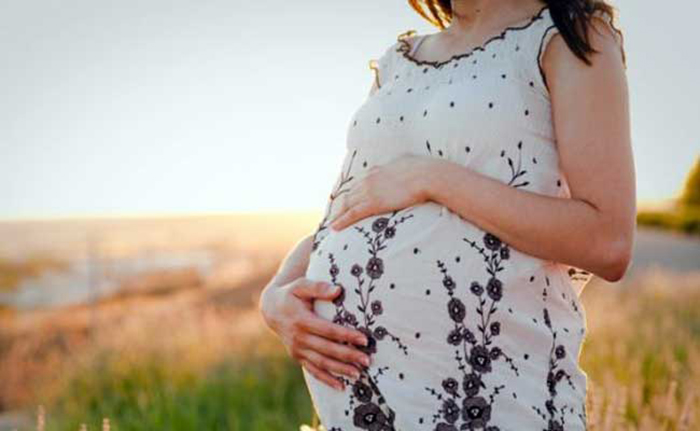While data are still limited and guidelines remain flexible, health officials in the United Kingdom have put the minds of many expectant mothers at ease.
Currently, there are no reported COVID-19 deaths in pregnant people. And, according to officials at the Royal College of Obstetricians and Gynaecologists (RCOG), the Royal College of Midwives and the Royal College of Paediatrics and Child Health (RCPCH), even if someone pregnant catches the virus, so far, there's no evidence it can be passed on to the baby.
"As this is a very new virus we are just beginning to learn about it, so the guidance will be kept under regular review as new evidence emerges," says Edward Morris, president of the RCOG.
"Over the coming weeks and months it is likely pregnant women in the UK will test positive for coronavirus. While the data is currently limited it is reassuring that there is no evidence that the virus can pass to a baby during pregnancy."
Among the research analysed, experts included a World Health Organisation report based in China that looked at 147 pregnant women. It found only 8 percent had severe symptoms and only 1 percent became critically ill.
The large majority of women, it seems, experienced only mild or moderate symptoms, and even though there is one reported case of a pregnant woman who required mechanical ventilation, the new guidelines explain she had an emergency caesarean section and made a good recovery.
"It's understandable that pregnant women would be concerned about exposure to the virus and any negative effect it could have on their health and the health of their fetus," Christopher Zahn, from the American College of Obstetricians and Gynecologists, told The New York Times recently.
"However, it is critical to note that at this time, for the general public in the United States, the immediate health risk from COVID-19 is considered low."
Pregnant women are known to have altered immune systems, which does put them at higher risk of complications from viruses like the flu. Still, not all of these illnesses are the same; and it's still unclear exactly what happens to pregnant women who contract the COVID-19 virus.
While the risks look low currently, the new UK guidelines say pregnant women who have other underlying health issues like diabetes or lupus should be more vigilant than most.
But right now, there's just not enough evidence to justify isolating an infected mother from her baby.
A small study from China, referenced in the guidelines, found that among nine pregnant women with COVID-19 pneumonia, their amniotic fluid, cord blood and breast milk samples all tested negative for the virus, as did a throat swab on their child after birth.
According to the United States Centres for Disease Control and Infection, there are some reports that SARS, which is a genetically related coronavirus, also cannot be passed on through breast milk, but even still, there might be other risks.
The website states that pregnancy loss through miscarriages and stillbirths are related to other coronaviruses, like SARS and MERS, and high fevers during early pregnancy can increase the chances of birth defects.
Experts in the UK, however, seem to disagree.
"There are currently no data suggesting an increased risk of miscarriage or early pregnancy loss in relation to COVID-19," read the new UK guidelines.
"Case reports from early pregnancy studies with SARS and MERS do not demonstrate a convincing relationship between infection and increased risk of miscarriage or second trimester loss."
The new UK guidelines acknowledge, of course, that this is an "evolving situation"; as more information comes in, they will update their advice. But based on what we know so far, the benefits of breastfeeding and keeping a mother with her child seem to outweigh the risks.
"The situation is now developing very quickly and this guidance is based on a thorough review of the evidence – limited though that is," says Russell Viner, president of the RCPCH.
"Based on current evidence, we don't believe that babies born to women who test positive for coronavirus should be separated. The impact of this separation, even as a precaution, can be significant on both the baby and the mother. We will review this recommendation as we see more evidence in the weeks and months ahead."
In the meantime, expectant mothers should stay away from those infected, wash their hands regularly, limit travel overseas, and contact their doctors if they have any more questions.
More about: #Coronavirus
















































